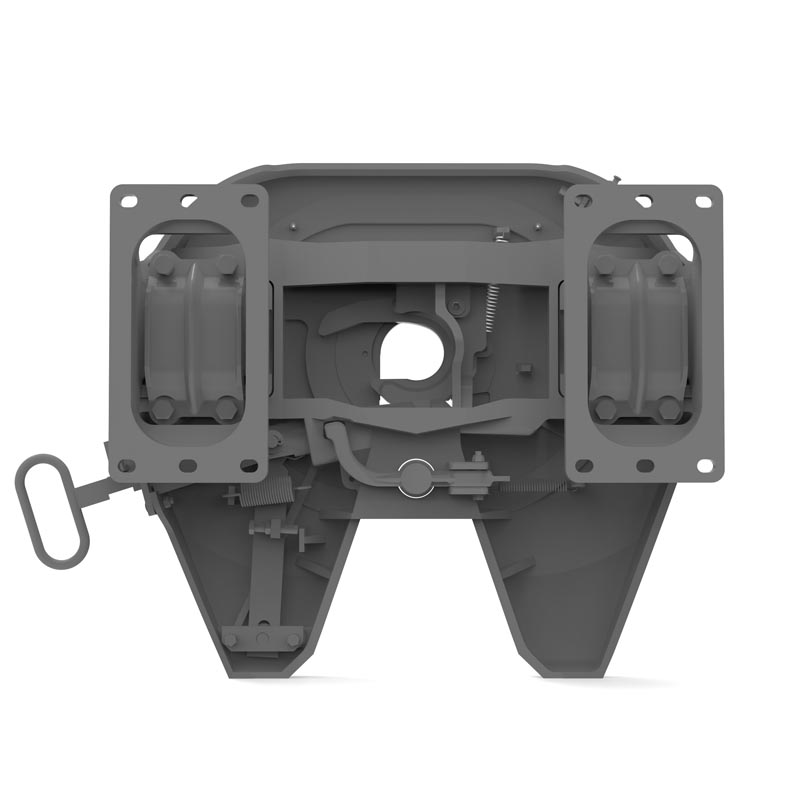Oct . 16, 2024 06:53 Back to list
Fifth Wheel Hitch Repair Services for Tractor Trailers and Heavy-Duty Vehicles
Understanding the Tractor Trailer 5th Wheel Hitch Service
The 5th wheel hitch is a crucial component in the world of trucking and heavy hauling. It serves as the connecting point between the tractor and the semi-trailer, allowing for the efficient transport of goods across long distances. Understanding its service requirements is vital for any trucking operator or owner-operator. This article delves into the importance of 5th wheel hitches, their maintenance, and service procedures to ensure safe and effective hauling.
What is a 5th Wheel Hitch?
The 5th wheel hitch is a type of trailer hitch that is mounted in the bed of a pickup truck or a tractor. It consists of a horizontal plate with a circular, rotating plate that allows for a pivoting connection to the locking mechanism on the trailer. This design enables simpler maneuverability compared to conventional hitches, especially when making tight turns.
Tractor trailers use the 5th wheel hitch because it distributes the weight of the trailer more effectively over the truck's axles. This design provides better stability, minimizes wear on tires, and improves overall handling of the vehicle, especially when fully loaded.
Importance of Regular Service
Regular service and maintenance of the 5th wheel hitch are essential for several reasons
1. Safety A malfunctioning hitch can lead to catastrophic failures, endangering the driver and others on the road. Regular checks can help catch wear and tear before it leads to serious accidents.
2. Efficiency A well-maintained 5th wheel hitch ensures that the tractor and trailer operate efficiently. Problems with the hitch can lead to increased fuel consumption due to inefficient towing dynamics.
3. Longevity Just like any mechanical component, the 5th wheel hitch requires care. Regular service routine can extend the lifespan of the hitch and prevent costly replacements.
Maintenance Tips for Your 5th Wheel Hitch
To maintain your 5th wheel hitch in optimal condition, consider the following service tips
tractor trailer 5th wheel hitch service

1. Regular Inspections Conduct visual inspections of the hitch before each trip. Look for signs of wear, rust, or damage. Pay close attention to the locking mechanism, pivot points, and mounting bolts.
2. Lubrication Proper lubrication is crucial for the smooth operation of the hitch. Clean the hitch and apply appropriate lubricant periodically. Use a high-quality grease designed for heavy-duty applications to ensure that parts move freely and reduce friction.
3. Check Tightness Ensure that all bolts and connections are properly tightened according to the manufacturer’s specifications. This helps to prevent any slippage or detachment while driving.
4. Cleaning Keep the hitch clean from dirt, grime, and debris. A clean hitch operates more efficiently and allows for easier connection and disconnection from the trailer.
5. Professional Servicing It is advised to have the 5th wheel hitch serviced by professionals at regular intervals. A qualified technician can identify and address issues that may not be visible to the untrained eye.
Signs of Wear and Tear
It’s essential to recognize the signs that your 5th wheel hitch may need service. These include
- Unusual noises while towing - Difficulty in connecting or disconnecting the hitch - Increased sway or instability when hauling - Visible cracks or deformation on the hitch itself
If you notice any of these symptoms, it’s crucial to stop using the trailer and have the hitch inspected immediately.
Conclusion
The importance of proper service and maintenance of a tractor trailer 5th wheel hitch cannot be overstated. Regular inspections, maintenance, and prompt repairs can significantly enhance the safety, efficiency, and longevity of the hitch system. For truck operators, investing time and resources into understanding and maintaining their 5th wheel hitch ensures smoother, safer, and more economically viable transportation of goods. Remember, a well-cared-for hitch not only protects your investment but also contributes to safer roads for everyone.
-
Hexagonal Wire Mesh-Shijiazhuang Land Auto Component Ltd.|Corrosion Resistance&Durability
NewsAug.11,2025
-
Hexagonal Wire Mesh - Shijiazhuang Land Auto Component Ltd.|Durable Agricultural Fencing&Industrial Use
NewsAug.11,2025
-
Hexagonal Wire Mesh - Shijiazhuang Land Auto Component Ltd. | Corrosion Resistance, Durable Solutions
NewsAug.11,2025
-
American Type Welding Series Suspension: Heavy-Duty Ergonomic Support
NewsAug.11,2025
-
Hexagonal Wire Mesh - Shijiazhuang Land Auto Component Ltd.|Versatile Solutions,Durable Corrosion Resistance
NewsAug.11,2025
-
Robust Germany Type Suspension for Commercial Vehicles & Trailers
NewsAug.11,2025
